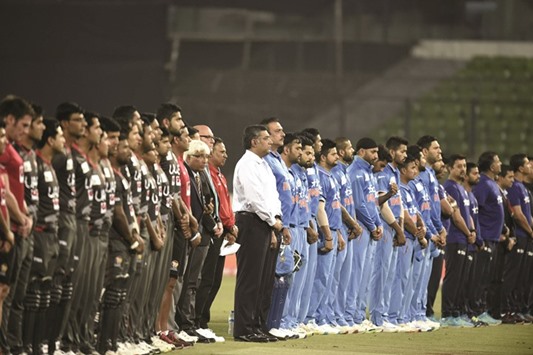Martin Crowe, who has died aged 53 of cancer, was not just one of New Zealand’s greatest ever cricketers, but one of the most elegant batsmen the world has yet seen. A teenage prodigy who made his international debut at 19, he played 77 Tests - 16 of them as captain - between 1982 and 1995, and was the second highest run scorer in New Zealand Test history, with 5,444 runs at an average of 45.36. He had strong claim to being the best New Zealand batsman the country has so far produced.
Yet it was the way he played, rather than the sheer volume of his run-making, that sparked the cricketing public’s imagination. Possessed of what Wisden called an “utterly correct, old-fashioned batting technique”, he had superb, effortless timing and could play every shot in the book with a lazy, upright grace.
Throughout the 1980s and early 90s those qualities served him well on many continents as a Test player, in domestic first class cricket with Auckland, Central Districts and Wellington in New Zealand, and with Somerset in England, before he retired through injury aged 33.
Along with the great Richard Hadlee, Crowe was a star turn during a profitable era for New Zealand cricket, playing a significant role in the country’s first Test series win in England in 1986 and, as captain, taking them to the semi-finals of the World Cup in 1992.
Crowe’s success appeared assured from the off. His father David had played first class cricket during the 1950s, his mother Audrey was the country’s foremost female cricketer, and his older brother, Jeff , would appear in 39 Tests for his country, many with his sibling. But from a young age it was Martin, born in Henderson, a suburb of Auckland, who drew most attention.
At 18 he was considered not only the best young batsman in New Zealand but in the world, and was taken on to the Lord’s ground staff in 1981. Having gained experience on New Zealand’s first class circuit and in the Bradford league in England, at 21 he was engaged as the overseas player for Somerset, stepping into the oversized boots of Viv Richards, who was on tour with West Indies.
Sharing a house with Ian Botham, he had a terrible first month, failing to reach double figures in five consecutive innings. But he grew into the role and by the end of the season had hit 2,600 runs in all competitions. He continued the success at Somerset in 1985, when he was named a Wisden Cricketer of the Year, and had another stint there in 1987 that was cut short by a back injury. Crowe made his Test debut against Australia in Wellington in 1982, and was selected to tour England in 1983. His early experiences of international cricket were fraught, and he did little of significance until scoring exactly 100 against England in Wellington the following year. Thereafter he grew in composure and achievement, and by 1986 had become a key member of the side that beat England 1-0 in a three Test series, scoring 106 in the drawn first Test at Lord’s and making handy contributions in the second Test win at Trent Bridge.
Fifteen more Test centuries were to follow - his total of 17 is still higher than any other New Zealander - and he scored 299 against Sri Lanka at Wellington in 1991, the highest Test score for New Zealand until Brendon McCullum reached 302 on the same ground in 2014. The peak of Crowe’s 143-match one-day international career was the 1992 World Cup, when he captained his side to within a whisker of the finals, scored more runs than anyone else in the tournament, was declared man of the series, and showed himself an imaginative leader whose innovations included opening the bowling with a spinner, Dipak Patel, and introducing pinch-hitters.
By 1994 his knees were causing him serious trouble, and by 1996 he was forced to call a halt to any kind of cricket. In all he scored 19,608 first class runs at an average of 56.02, putting him among the all-time elite. He also bowled useful medium-pace in the earlier part of his career, including at Test level.
After retiring, Crowe became a commentator for Sky TV and an executive producer of Sky cricket coverage in New Zealand. He joined the board of the South Sydney Rabbitohs rugby league club in Australia, which his cousin, the actor Russell Crowe, part-owned, and came up with the idea of Cricket Max, a three-hour version of the game that never quite caught on but laid the foundations for Twenty20. He had a short spell as chief executive of the Royal Challengers Bangalore cricket team in the Indian Premier League and in 1992 was made MBE.
Later in life, Crowe admitted that the pressure of being a cricketing prodigy had been “torture”. When he left the game he suffered from depression, which was partly alleviated by a “rebirthing” programme in which he identified that his early experiences had left him with “unfinished teenage development”. In 2009 he married the former Miss Universe, Lorraine Downes . She survives him, as do his mother Audrey, siblings Jeff and Debbie, his daughter, Emma, from a previous relationship with Huhaana Marshall, and by Lorraine’s children, Hilton and Jasmine.
Martin David Crowe, cricketer, born 22 September 1962; died 3 March

The Indian and UAE teams taking part in the Asian T20 tournament in Bangladesh observe a minute’s silence as a mark of respect for Martin Crowe.
